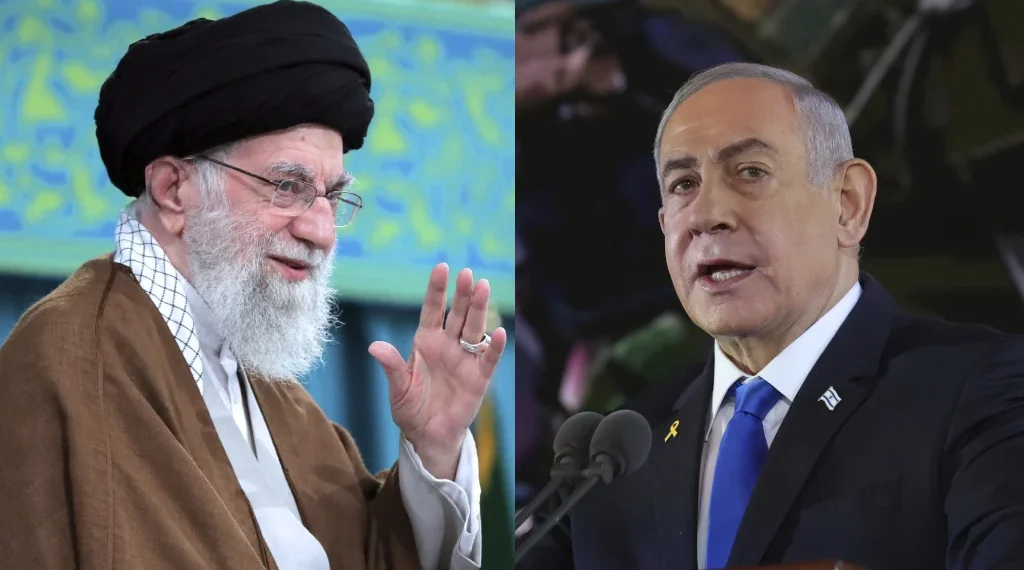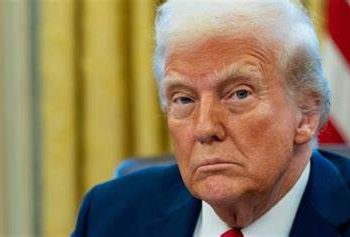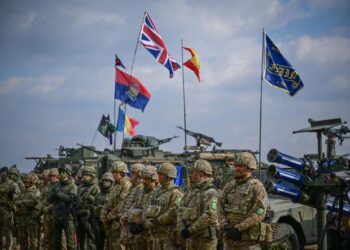Israeli Prime Minister Benjamin Netanyahu has clarified that toppling Iran’s government is not an official objective of Israel’s military strategy, though he suggested regime change could emerge as an unintended consequence of ongoing operations.
Speaking in an interview with Israel’s public broadcaster, Netanyahu emphasized that any political transformation in Iran must originate from within the country itself. “The matter of changing the regime or the fall of this regime is first and foremost a matter for the Iranian people. There is no substitute for this,” the Prime Minister stated.
Netanyahu drew a clear distinction between Israel’s formal military goals and potential secondary outcomes, explaining his strategic approach to the Iranian threat. “That’s why I didn’t present it as a goal. It could be a result, but it’s not a stated or formal goal that we have,” he said, indicating that while regime change might occur, it remains outside Israel’s declared objectives.
The Israeli leader made bold assertions about his country’s military capabilities regarding Iran’s nuclear program, claiming Israel possesses the necessary firepower to eliminate all Iranian nuclear facilities independently. His comments come as the White House deliberates whether to join potential military action against Iran’s nuclear infrastructure.
“We have the power to remove all our targets, all their nuclear facilities,” Netanyahu declared, projecting confidence in Israel’s ability to conduct unilateral strikes. However, he acknowledged the strategic value of American participation while maintaining that Israel would proceed regardless of U.S. involvement.
The Prime Minister’s remarks particularly focused on Iran’s heavily fortified Fordow Fuel Enrichment Plant, a critical nuclear facility buried deep beneath a mountain near Qom. Military analysts have suggested that destroying this hardened target might require advanced American bunker-busting bombs, raising questions about Israel’s independent strike capabilities.
When directly asked whether Israel could successfully target Fordow without U.S. assistance, Netanyahu remained resolute about his country’s military options. “But the president’s decision — whether he wants to join or not — is his decision. He will do what is good for the United States, and I will do what is good for the State of Israel. So far, everyone is doing their part,” he explained.
Netanyahu’s comments reflect the complex diplomatic and military calculations surrounding potential action against Iran’s nuclear program. While expressing readiness for independent action, his statements also leave room for coordinated efforts with the United States should President Trump decide to participate.
The Israeli Prime Minister’s approach suggests a strategy of maintaining operational flexibility while avoiding commitments that could complicate diplomatic relationships or limit military options. By framing regime change as a potential byproduct rather than a primary goal, Netanyahu appears to be managing both domestic expectations and international concerns about Israeli intentions.
President Trump has separately acknowledged American capabilities regarding the Fordow facility while maintaining strategic ambiguity about potential U.S. involvement. “That doesn’t mean I’m going to do it — at all,” Trump stated, indicating that possessing the capability to destroy the site does not automatically translate into a commitment to action.
The exchange highlights the ongoing tensions between Israel and Iran over nuclear development, with both countries engaged in a complex strategic dance involving military threats, diplomatic maneuvering, and alliance considerations. Netanyahu’s statements suggest Israel remains prepared to act unilaterally while hoping for American support in what could become a defining moment for Middle Eastern security.








